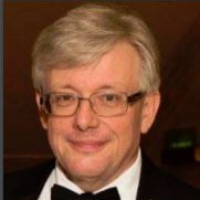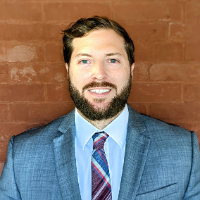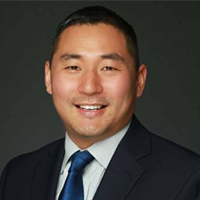 Delaware White Collar Crime Lawyer List
Delaware White Collar Crime Lawyer List
Sponsored Law Firm
-
 x
x

Click For More Info:
-
The Law Offices of Richard L. Cooper, P.A.
848 Brickell Avenue Suite 800 Miami, FL 33131» view mapDWI/DUI, Drug Trafficking, Felony Nationally Ranked Top 40 Under 40
With Richard L. Cooper you can expect a trusted confidant who will work diligently to fully understand your case and determine a road map to help you regain control of your life.
800-756-2781
Sponsored Lawyers
1-10 of 41 matches
White Collar Crime
Elwood T. Eveland Jr. is a practicing lawyer in the state of Delaware specializing in Accident & Injury Law. Mr. Evelend received his J.D. from Widener University School of Law in 1981.
(more)White Collar Crime
Michael DegliObizzi is a criminal defense attorney with an office based out of Wilmington, Delaware. He is a former criminal prosecutor and supervising attorney at the Delaware Department of Justice. Michael is a seasoned trial attorney, having tried over 75 cases to verdict in the Justice of the Peace Courts, Court of Common Pleas, and Superior Court. He handles all types of criminal matters including traffic offenses, misdemeanor and felony level offenses (assaults, drugs, firearm, etc.), Driving Under the Influence cases, Domestic Violence cases, juvenile offenses, violations of probation, expungements and pardons, and preliminary hearings. Michael graduated from Duke University in 2009 with a bachelor's degree in History and a certificate in Markets and Management Studies. He was a varsity letter winner for Duke's Division I wrestling team and was honored as a National Wrestling Coaches Association Academic All American in 2008, as well as an Atlantic Coast Conference Academic Honor Roll member in 2006, 2007, 2008, and 2009. Michael then attended law school at Villanova University School of Law where he earned his Juris Doctor degree in 2012. He then successfully passed the Delaware Bar Exam and began his legal career in the Criminal Division at the Delaware Department of Justice where he prosecuted misdemeanor criminal offenses in the Court of Common Pleas and Justice of the Peace Courts. He primarily focused on DUI cases and was the lead attorney responsible for running the Court of Common Pleas’ Mental Health Court on behalf of the State. He progressed in his duties to handling complex felony cases including financial related crimes, Burglary, Robbery, Drug Dealing, and weapon/firearm related offenses. Additionally, Michael has successfully prosecuted several homicide and gang participation cases. In 2016, Michael was promoted to be the Assistant Unit Head of the Misdemeanor Trial Unit where he supervised all new criminal Deputy Attorneys General as they entered the office. He was responsible for teaching new prosecutors how to handle a caseload and take a case to trial. As part of his duties, he reviewed every misdemeanor DUI arrest in New Castle County to determine the appropriate plea offer. Michael is certified in DWI Detection and Standardized Field Sobriety Testing by the National Highway Traffic Safety Administration. He has led numerous DUI trainings for both law enforcement officers and attorneys. In 2018, Michael was promoted to Unit Head of the Domestic Violence Unit. He supervised a team of Deputy Attorneys General, paralegals, administrative specialists, and social workers that handled misdemeanor and felony domestic violence, child abuse, and elder abuse cases. He was the Attorney General’s designee on the Fatal Incident Review Team, the Victim Services Advisory Committee, and the Domestic Violence Coordinating Council committees. While in law school, Michael served as a judicial intern for the Honorable Chief Justice Myron T. Steele of the Delaware Supreme Court. He also interned at the law firm of Kimmel, Carter, Roman, Peltz & O'Neill, P.A.
(more)White Collar Crime
Chris Johnson is a native of Philadelphia and graduated from the William Penn Charter School. He received an academic scholarship to the University of Delaware where he majored in Economics and also competed on the Division I Indoor & Outdoor Track & Field teams. He graduated from Widener University School of Law in December 2009 and immediately went into private practice with the firm of Shanese I. Johnson & Associates, P.C. Chris currently practices in the firm's Family Law, Real Estate, and Criminal Law practice areas. Even though Chris is fairly new to the practice of law, Chris has already represented hundreds of clients in local Family Law matters in Philadelphia, Montgomery, Delaware, Chester, and Berks counties. Chris prides himself on his commitment to serving his clients with excellence by providing experienced, detail oriented, high quality and affordable representation. Chris also has worked at several other diverse legal agencies including the Philadelphia Court of Common Pleas Domestic Relations Division, the State of Delaware Attorney General's Office Criminal Division, and also a major civil litigation firm in Lancaster County, PA. Chris is currently a very active volunteer as he gives his time to represent clients in both civil and criminal matters for Philadelphia VIP, the Consumer Bankruptcy Assistance Project, and South Jersey Legal Services. Chris also serves national and local political campaigns as a voter protection attorney. His other activities include the Philadelphia Bar Association (Family Law Section, Criminal Justice Section), Pennsylvania Bar Association (Young Lawyers Division), Camden County Bar Association, Support Center for Child Advocates, Barristers’ Association of Philadelphia.
(more)White Collar Crime
Jimmy Chong is admitted to the bars of Pennsylvania, Delaware and New Jersey and in the District Courts of Washington DC, Delaware, and the Eastern District of Pennsylvania. He has offices in Wilmington, DE, Lansdale, PA and Philadelphia, PA. He focuses his practice on personal injury law but has handled a variety of other types of law including business transactions, landlord tenant law, contract law and criminal law. Mr. Chong has been rated by Super Lawyers in both Pennsylvania and Delaware, the National Trial Lawyers Association and the National Association of Distinguished Counsel. He is presently a member of the Board of Directors at Penn Asian Senior Services, Philip Jaison Memorial Foundation and has served as a member of the Board of Directors and Chairman of the Korean American Association of Greater Philadelphia. He has acted as general counsel for the Korean American Grocers Association of Philadelphia. He earned his JD from Widener University School of Law which is presently known as Delaware Law School and his Estate Planning Certificate through the LLM Graduate Tax Program at Temple University Beasley School of Law. He has completed certificate courses with the National Institute for Trial Advocacy. He earned his BS in Business Management and BA in Economics from Bucknell University while earning the Bucknell Scholarship all four years he attended the university. He was born and raised in the State of Delaware, lived in Philadelphia, PA for many years but now resides with his family in Montgomery County, PA.
(more)White Collar Crime
Beverly was born and raised in New Castle County, Delaware, graduated from the University of Delaware, and the Delaware Law School of Widener University. One of the area's leading personal injury attorneys, she confines her Wilmington practice to representing people who have been injured in construction site, auto, nursing home, and hospital negligence as well as workers' compensation.For nine of her 27 years of practice, she was the managing partner of the Wilmington office of an out of state law firm. She is admitted to practice before the Delaware and Pennsylvania State, and Federal Courts, the Third Circuit Court of Appeals, and the United States Supreme Court. She now practices with an associate attorney, two paralegals, a nurse, and other support staff.Beverly is the past president of the Delaware Trial Lawyer's Association and is currently one of the two governors from Delaware on the Board of the AAJ. She currently serves on several committees aimed at preserving her clients' rights. She is active in preserving the jury system and the injured's access to the courts by working closely with Delaware's general assembly and the United States Congress toward those goals. She is a member of the Million Dollar Advocates Forum and was featured in the August 2006, "Top Lawyers" issue of Delaware Today magazine.
(more)White Collar Crime
In 1978, I opened Delaware’s first suburban law office to respond to the overwhelming need for legal services for the middle income consumer. The rich always could afford attorneys and the poor had free legal services. Middle income consumers always were left out in the cold. Since that time, our firm’s focus has been to help those in the middle. We’ve helped protect the rights of thousands of people in all areas of the state. I am proud of our track record and the help that we have given to middle income Delawareans. When I'm not practicing law, I am a water colorist and author. In 2019. I completed a project about the Twelve Tribes of Israel consisting of art prints and a companion book. For more information on this project, visit ImagesInspired.net In June 2020 I became a Certified Life Coach. I partner with young professionals and entrepreneurs to help them achieve their personal and professional dreams and aspirations. Click here for more information on Life Coaching services.
(more)White Collar Crime
Founding partner with Eric Doroshow of the law firm of Doroshow, Pasquale, Krawitz & Bhaya. The firm, which began with two lawyers, now has over 20 lawyers and 90 employees and has been serving clients in Delaware for 30 years. Mr. Pasquale has more than 30 years of experience and expertise in the area of plaintiff's personal injury claims, including numerous jury trials. Mr. Pasquale has obtained several verdicts for injured clients in excess of $1 million. Mr. Pasquale is also experienced in the areas of family law, insurance law, real estate and land use law.
(more)White Collar Crime
Arthur studied at Penn State University & Widener University - Delaware Law School. He is a frequent speaker on automobile insurance issues and was the lead attorney for several million dollar cases for his clients.
(more)White Collar Crime
Shakuntla is a graduate of University of Delaware where she has received her Bachelor of Science in Political Studies and Philosophy with a Minor in Women Studies, and a graduate of Northeastern University School of Law (1985) Shaku is a frequent speaker on automobile insurance issues. Shaku is a past President for the Delaware Trial Lawyers Association and the YWCA.
(more)



 Richard L. Cooper Miami, FL
Richard L. Cooper Miami, FL AboutMiami Attorney at Law
AboutMiami Attorney at Law ServicesCriminal Defense
ServicesCriminal Defense










